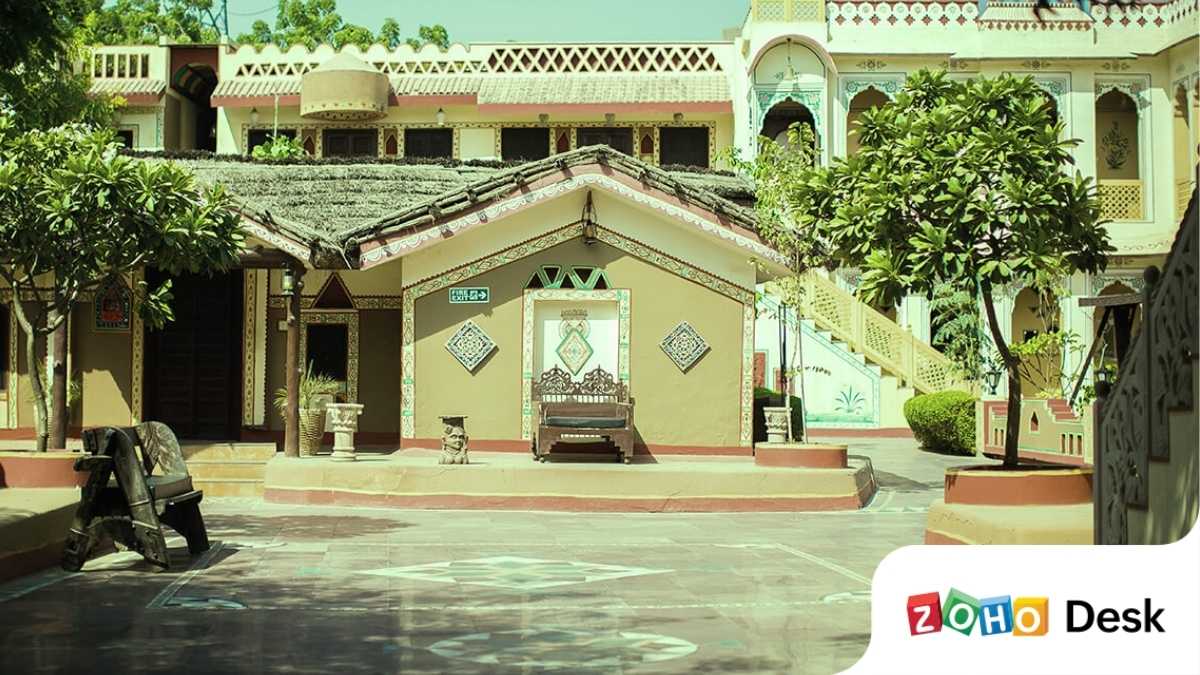- HOME
- Customer Experience
- Part 3- Fruits Of Wisdom
Part 3- Fruits Of Wisdom
- Published : September 30, 2022
- Last Updated : August 9, 2023
- 828 Views
- 4 Min Read

A few months back, while travelling for a video shoot, we met some captivating people who ran businesses in these areas. I could not help but share these experiences in this series while I did take the liberty of changing their names. It is inspired by the values demonstrated by the people of rural India. Their approach got me thinking of the customer service values in small towns and villages.
On our way, we passed through many small villages, where we purchased fresh fruits and local delicacies. Many a time during our tea breaks, we chanced upon fascinating people from these villages. They would share stories, and sometimes,offer to share food they had brought along for lunch.
By the last mile of our journey, we were all eager to reach our destination and set up for the shoot. We had collected many beautiful handicrafts that were given to us as souvenirs in the villages we visited. Our creative director had already planned to add them to the misc en scene of the shoot.
The road ahead was blocked. A herd of sheep was crossing the road, shepherded by a young boy. He made a strange clicking sound through the corner of his lips, swaying his thin cane, mimicking an action of slicing through air. He saw us waiting to pass by, and tried to hasten the herd. We had a few snacks with us and decided to pull over and offer them to him.
He smiled and said, "The road ahead is jammed due to a tree blocking the path." He advised us to follow him for another way out that went along the fields. There were paddy fields to one side, a house in the middle, and sugar cane fields at the other end. There was a barn next to the house, but few other homes in the vicinity.
The boy introduced himself as Babloo. He was in school, and helped out his mother in the evenings. His mother had just returned from the market after selling the season's harvest. She still had some oranges left in her basket, which we asked to purchase.
She then invited us to have some of the orange juice she had made for her children. She welcomed us into her house and brought us each a glass. While we drank, she told us of the hardships her family faced in selling their produce, as the middle men charged exorbitant prices for their services.
They had placed cots outside, under a hay shed as a place to relax. We spent a while talking and laughing before deciding it was time to leave. We purchased oranges for our journey ahead, and the boy ran to get us some extra bottles of orange juice to carry. When we tried to pay for the bottles, the mother replied, "I don't need money in return. Please keep the juice for the long journey ahead. After all, it is so sunny during the day. I am more than happy to share with you."
We waved our goodbyes and left for our journey, with the faces and smiles of the family disappearing slowly in the distance.
By six in the evening, we reached our location. We retired to our rooms at a nearby inspection bungalow. The caretaker informed us that dinner would be ready in the dining area by 8 PM.
We all had a good power nap and freshened up for dinner. When we arrived, the food was already served on the table, and the room was filled with the aroma of home-cooked food.
We all sat around the table, and began to discuss the journey so far. How adventurous was our beginning with our car breaking down at the very start! But luckily the villagers of the neighbouring area had been quite a help. Tukuram, who had serviced our car, had gone out of his way by not only repairing the car, but arranging a meal of pakoras for us as well. Our next stay at the Chitkuli village had been just as welcoming.
We noticed a man about the age of fifty was having dinner at a table next to us. He seemed to have been staying in the same accommodation as us. He had a diary next to him, where he was quickly jotting down points while we were describing our journey. We asked why he was carrying the diary, and he replied that he was penning down his research.
He introduced himself as a commerce professor who taught at a university nearby. He was currently writing a book on the behavioural traits of trade in rural India.
He asked for details about our journey, and we told him about how the hand loom weavers from the Chitkuli village gave us scarves authentic to the practice as souvenirs. Their this gesture had made us feel as though we were part of their community, rather than mere customers. To this, the professor replied, "In researching the behaviours of rural folk in business, I have noticed that the value of togetherness serves as a priority. The rural folk believe that a business flourishes when your customer is a part of your journey, rather than a one-time transaction."
He explained, "Rural folks tend to share deeper bonds with the people around them. They value interdependency and believe each person plays a priority role in the welfare of the community. It is these feelings among the rural folk that binds them together."
He said, "You were treated not like a customer, but as a part of their family and community. That is because of the deep-rooted value of Athithi Devo Bhava, which shapes business transactions in rural communities."
"In contrast, consider most modern businesses," he said. "When was the last time any business made you feel like part of their family during the very first encounter?
You have cutting edge technology, artificial intelligence, and augmented reality, blah blah.... available with business tools like CRMs and help desks. But why is the human touch missing? Perhaps it is because those who build all these fancy tools never took a trip like you have.
He then emphasized us to think," Imagine someone from one of the villages you visited—for example, Babloo the shepherd—growing up to build a high-technology customer service solution. Won't he bring all his empathy and cultural values to it?"
That's when I replied to him, "Yes! There is already one such business, and I work for it."
It's called Zoho Desk. It was built in the heart of rural India in the year 2016 by leaders who believe in the notion of Atithi Devo Bhava. It is a business that stems from these very ideals. In fact, it is more than a business; it is a family and a community.



Comments(2)
Thank you for your valuable feedback. For more informative and exciting updates, stay tuned.
Well articulated and gave a feeling that as if we travelled and met Tukaram, sarpanch and Babloo. You need to create that emotional connect .delighting customers thru your humble approach, building and sustaining with your core values. Continue the good work.really enjoyed would love to be connected with such experience